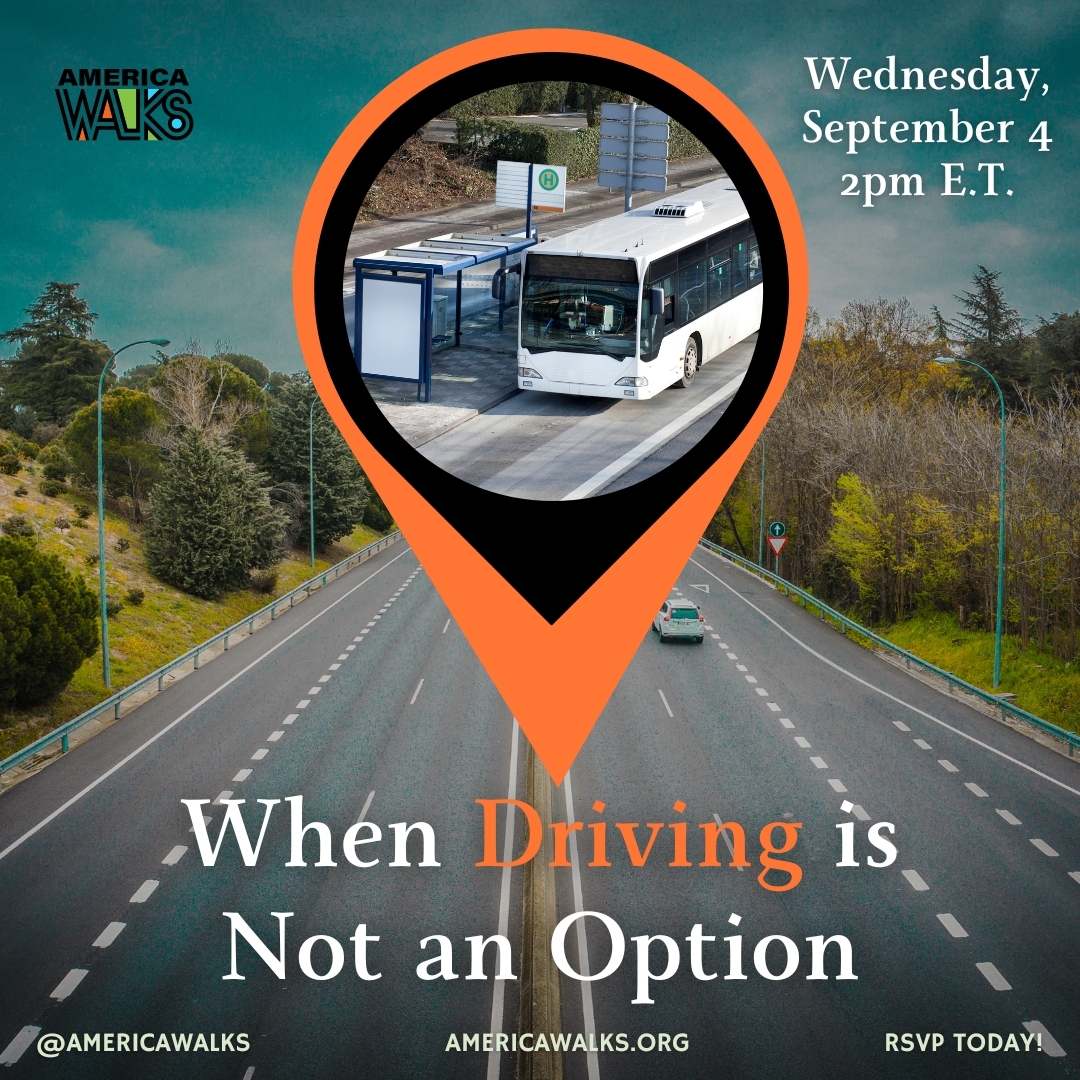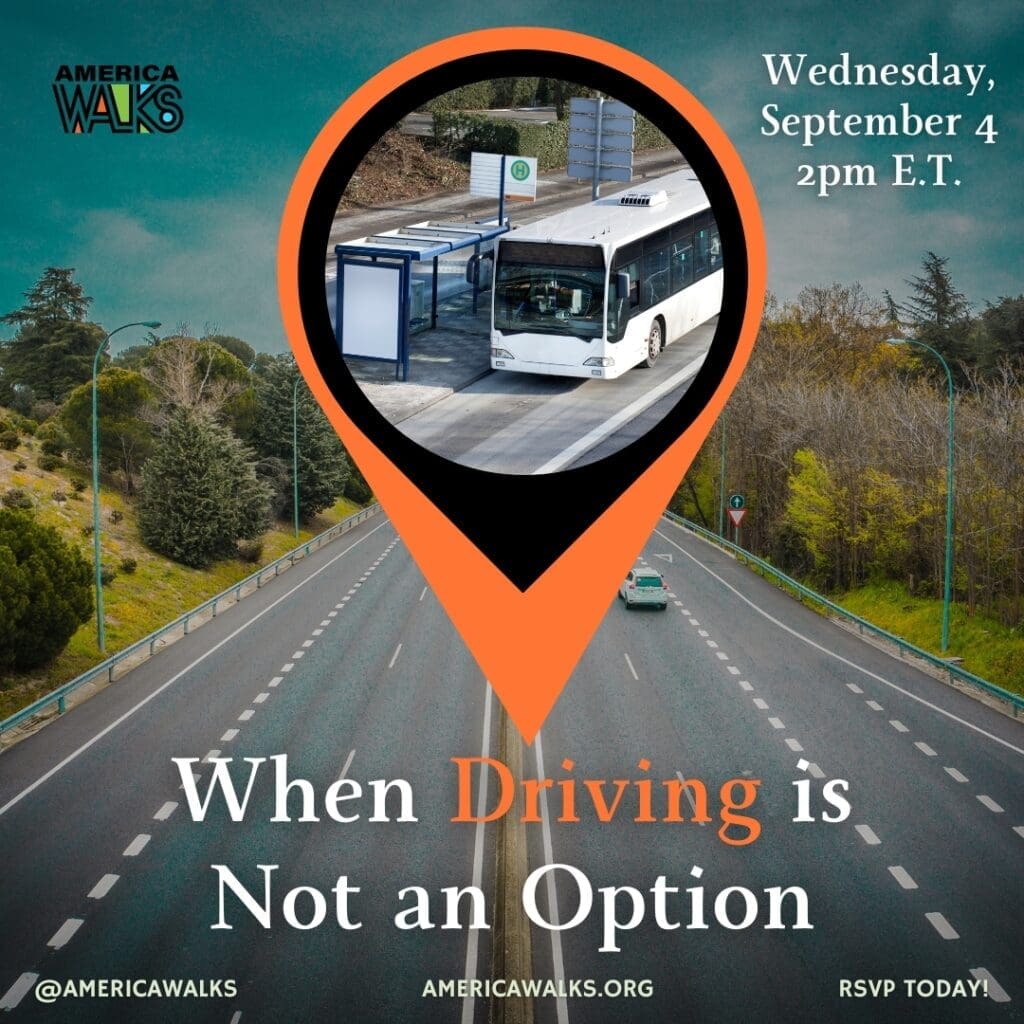Nondrivers are Altering the Transportation Dialog


We’re so usually instructed that no person walks, no person bikes, or no person takes the bus, however we all know that 30% of the inhabitants doesn’t drive. Utilizing the framing of “nondrivers” is inclusive of all individuals who don’t personal a automotive. It consists of older adults, disabled folks, folks experiencing homelessness, children, and extra. All collectively there are such a lot of of us, and collectively we’re a lot stronger. In her new e-book, When Driving Is Not an Possibility Steering Away from Automobile Dependency, Anna Zivarts encourages us to empower these with the least decisions and guarantee their tales lead.
We have been joined in dialog by Gabe Cazares, Govt Director of LINK Houston and Laura Saltzman, Senior Coverage Analyst at Entry Residing.
Some Massive Takeaways:
Transportation not recreation
Energetic transportation too usually begins with a give attention to folks biking or operating recreationally. However when you lean into the coalitions to broaden the dialog you create higher and extra inclusive advocacy. YES, folks biking recreationally want protected bike lanes, but in addition individuals who bike as their predominant mode of transportation want protected bike lanes. Sidewalks profit leisure runners, but it surely additionally advantages folks utilizing mobility gadgets and fogeys utilizing strollers. Once we lead with recreation, it fosters a notion that sidewalks usually are not obligatory, simply an amenity, or ok for match lively folks. As an alternative, let’s lead with transportation for each day wants, for everybody..
Altering the default mode on spending
We at all times hear there may be not sufficient cash for the infrastructure we want. But legislatures routinely give you the funds that help driving and roadway growth. When transportation advocates lean in to know the wants of incapacity advocates and amplify their voices, it makes a stronger coalition to alter that default mode of pondering.
Amplify incapacity advocates – however don’t tokenize!
Main with voices of the disabled issues, however really make the area for management. In a dialog the place drivers are prioritized, it’s critical that we’ve folks within the room who’re visibly nondrivers and have their voices heard. It’s laborious to disregard the individual truly within the room. It’s about framing the dialog to incorporate all of us and being intentional about making a platform that amplifies the precise considerations and priorities of these presently excluded
Bear in mind it’s not simply cities!
Even in tremendous rural areas there are a lot of nondrivers. If the choice makers start to see the quantity of nondrivers of their place, it opens the door to insurance policies that embrace nondrivers and drivers. The Week With out Driving framing can attain individuals who aren’t at all times prepared to simply accept that not everybody drives.
Right here’s what you are able to do:
The Week With out Driving was created to embolden elected officers and transportation resolution makers to expertise the world of nondrivers. We’re difficult all elected officers to take at the least one journey with out utilizing a private automobile. Creating allies in management is the aim!
Even when they don’t participate, having conversations with elected officers in regards to the Week With out Driving introduces the concept consciousness of nondrivers is vital. That alone is successful. Use the week to share transportation tales, participate in neighborhood dialog, and amplify your and others’ experiences on social media and information protection.
If you happen to’d like to seek out native organizations who’re concerned within the Week With out Driving, try our listing of native and regional companions, and should you don’t see somebody in your space, try these templates and trainings to get began internet hosting the problem close to you!
Take a look at the complete recording of the webinar: